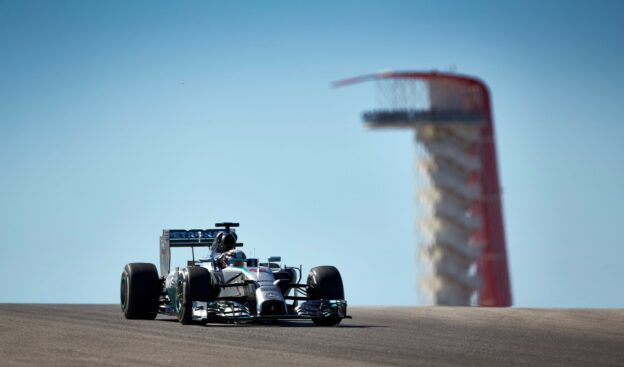Mercedes rivals warn 'freeze' could end completely

With progress also having stalled over the small teams' touted 'fighting fund', Toto Wolff emerged from a big team bosses meeting at Interlagos on Saturday with little news.
"Nothing was agreed on anything," he told reporters.
"The situation is unchanged on everything, the money side, engine side."
As ever, there is always more to it in formula one.
The recent history of the engine 'freeze' saga is that while dominant Mercedes has been making noises of potential compromise, the German camp is still at loggerheads with disgruntled rivals Ferrari and Renault.
The latter two are railing against the current engine homologation rules, or the so-called 'freeze' that is designed to keep speeds and costs down by limiting the amount of performance development engine makers can do within a season.
But that rule is also threatening to freeze in Mercedes as the likely championship favourite for years to come.
But even between 2014 and 2015, the engine suppliers are allowed to change a maximum of 48 per cent of their current designs, which is then re-'frozen' in February.
Until now, Renault and Ferrari have argued that the development deadline should now be extended until July.
But in the last day or two, it has emerged that they also want the percentage of possible changes - represented by a complex 'token system' - increased by almost a further 20 per cent.
"It's too expensive," argue Mercedes' Wolff and team chairman Niki Lauda, according to Auto Motor und Sport.
For now, Mercedes' lack of agreement simply means nothing will change for 2015, as warned by Wolff as he departed the Interlagos meeting.
But more serious games are at play.
It emerges that while unanimity is required for 2015, a simple majority vote is enough for a year later -- and Mercedes, Renault and incoming supplier Honda obviously have the numbers on their side.
"Mercedes' opponents are threatening that engine development will be completely opened up (in 2016)," Germany's Auto Motor und Sport reports.
An insider declared: "Then there will be war."
With Caterham and Marussia already gone, and struggling Lotus, Force India and Sauber now complaining loudly about costs, opening up engine development would be a major move for F1.
"The fact is that with the new (V6) engine, which from a technology perspective is a great thing, the costs were passed on to all the teams," Lotus' Gerard Lopez argues.
He says Lotus alone spent up to $60 million on buying a Renault engine in 2014 and developing the complex systems around it.
"If we unfreeze the engines now, which is the next topic that is coming up ... at the end of the day not taking decisions has had an immediate impact on the sport in the last couple of weeks with two teams disappearing," Lopez warned.
✅ Check out more posts with related topics:













LAST 3 F1 Fan COMMENTS